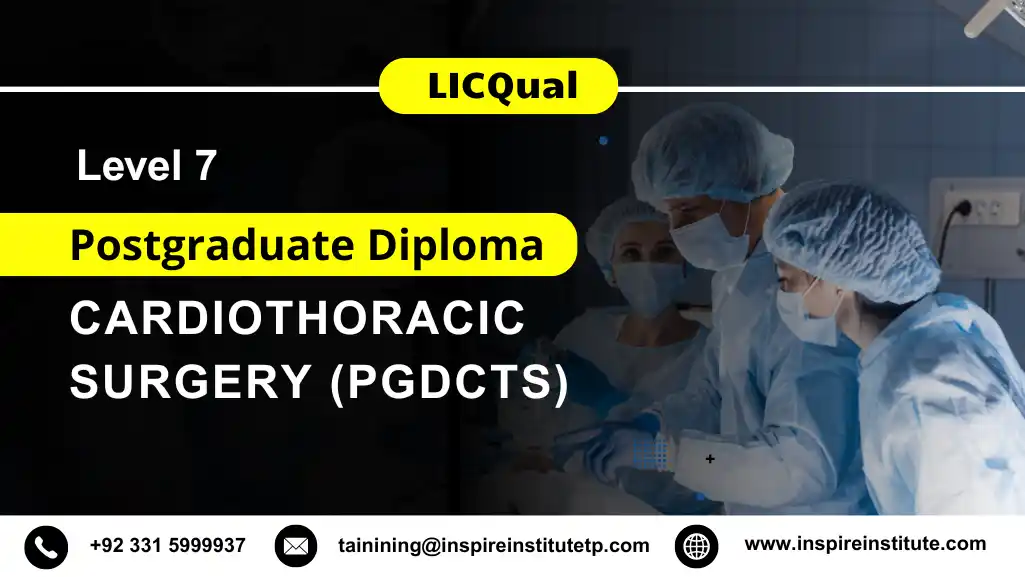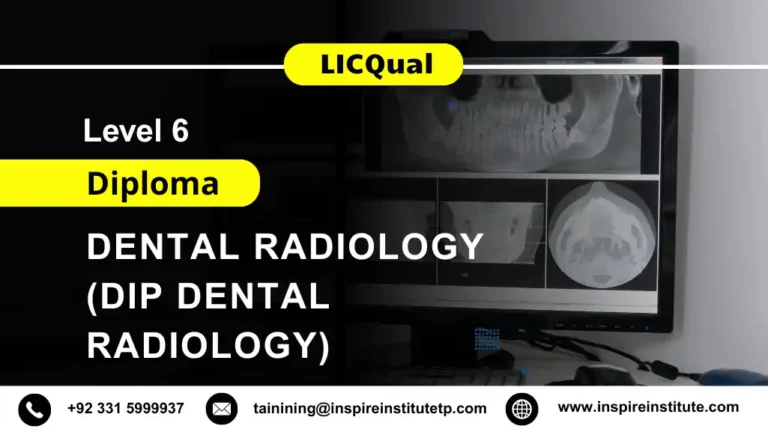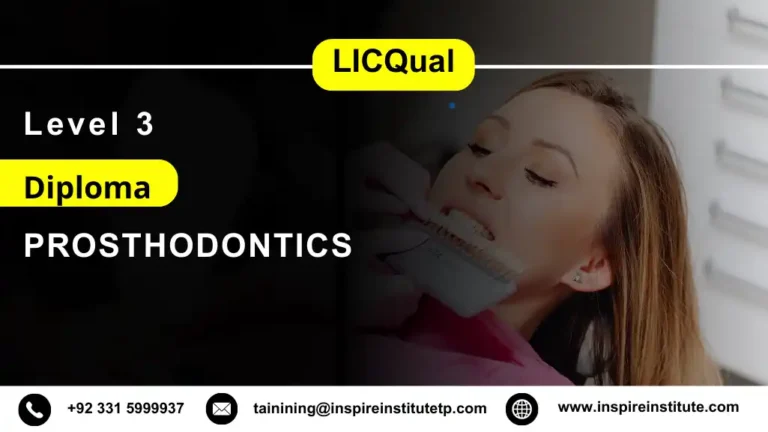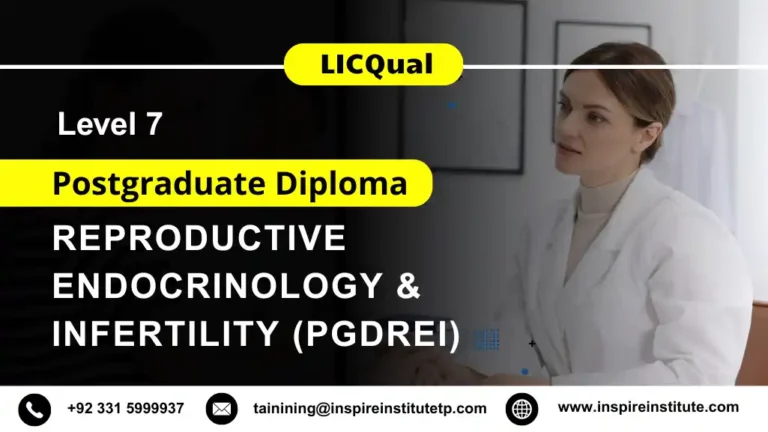LICQual Level 7 Postgraduate Diploma in Cardiothoracic Surgery (PgDCTS)
The LICQual Level 7 Postgraduate Diploma in Cardiothoracic Surgery (PgDCTS) is a UK-accredited, advanced-level qualification designed for surgeons, medical practitioners, and healthcare professionals seeking to excel in the field of cardiothoracic surgery. As cardiovascular and thoracic diseases remain leading global health challenges, this programme provides a specialised academic and practical framework to equip learners with the expertise needed to diagnose, manage, and surgically treat complex cardiac and thoracic conditions. It offers a transformative learning experience for professionals aiming to advance their careers in cardiac, thoracic, and vascular surgery.
The LICQual Level 7 Postgraduate Diploma in Cardiothoracic Surgery bridges theoretical knowledge with advanced clinical practice, ensuring that learners develop a strong foundation in cardiothoracic anatomy, physiology, and surgical principles. Participants gain a comprehensive understanding of topics such as coronary artery bypass grafting, valve repair and replacement, lung resection, mediastinal surgery, and minimally invasive surgical techniques. Through evidence-based study and applied learning, the course prepares healthcare professionals to deliver exceptional patient outcomes in high-acuity surgical environments.
This postgraduate diploma in cardiothoracic surgery focuses on developing advanced surgical judgment, clinical reasoning, and decision-making skills essential for operating room success. Learners engage in practical case studies, simulation-based assessments, and reflective assignments that enhance their ability to assess patients, plan interventions, and manage perioperative care. The programme is designed to meet international surgical standards, supporting both career growth and continuous professional development.
The LICQual Level 7 Diploma in Cardiothoracic Surgery also provides learners with research and leadership competencies vital for modern surgical practice. Participants explore recent innovations in cardiac surgery, thoracic oncology, transplantation, and minimally invasive procedures while learning to apply evidence-based approaches to patient management. The course nurtures analytical and problem-solving abilities, enabling professionals to contribute to clinical research, surgical advancements, and healthcare improvement initiatives.
Why Choose this Qualification
The LICQual Level 7 Postgraduate Diploma in Cardiothoracic Surgery (PgDCTS) is a prestigious UK-accredited qualification designed to equip medical professionals with advanced surgical knowledge and clinical expertise in cardiac and thoracic healthcare. This programme is ideal for surgeons, clinicians, and healthcare practitioners who aspire to become leaders in the field of cardiothoracic surgery. It provides a blend of evidence-based learning, advanced surgical theory, and applied clinical practice aligned with international healthcare standards. Choosing this qualification ensures learners gain globally recognised credentials that strengthen their career prospects, enhance patient care standards, and empower them to contribute to the future of surgical innovation.
Key Reasons to Choose this Qualification
1. Comprehensive Understanding of Cardiothoracic Surgery
- Gain in-depth knowledge of cardiac and thoracic anatomy, physiology, and surgical interventions.
- Study essential topics such as coronary artery bypass grafting, valve replacement, and thoracic oncology.
- Understand preoperative assessment, intraoperative management, and postoperative recovery.
- Develop clinical competence in performing and assisting complex cardiothoracic procedures.
- Master the ability to interpret diagnostic imaging, laboratory data, and surgical reports.
2. Advanced Surgical and Clinical Skills
- Enhance technical proficiency through case-based assignments and surgical simulations.
- Strengthen hands-on expertise in cardiothoracic operating techniques and patient management.
- Learn evidence-based approaches to managing complications and surgical emergencies.
- Apply modern technologies, including minimally invasive and robotic-assisted surgery.
- Build clinical decision-making skills applicable in diverse healthcare settings.
3. UK-Accredited and Globally Recognised Qualification
- Earn a prestigious UK-accredited cardiothoracic surgery diploma recognised by international employers.
- Meet global benchmarks in postgraduate medical education and surgical training.
- Enhance employability and career mobility in hospitals, academic institutions, and research centres.
- Validate your professional competence with a qualification that aligns with NHS and global health standards.
- Strengthen your academic profile for future doctoral or fellowship-level study.
4. Flexible, Assignment-Based Learning Pathway
- Study at your own pace with a fully online, assignment-based learning model.
- Balance professional duties with academic growth without interrupting clinical work.
- Access structured learning materials, academic mentorship, and digital study resources.
- Receive personalised feedback and continuous support throughout the learning journey.
- Experience an inclusive study environment designed for working healthcare professionals.
5. Evidence-Based and Research-Informed Curriculum
- Engage with the latest research in cardiothoracic surgery and cardiovascular medicine.
- Learn to critically evaluate surgical literature and clinical data.
- Integrate research findings into real-world clinical decision-making and patient care.
- Gain skills in designing, conducting, and interpreting clinical research projects.
- Promote continuous improvement and innovation in cardiothoracic surgical practice.
6. Leadership and Professional Development
- Develop leadership, teamwork, and communication skills essential for surgical practice.
- Learn effective strategies for managing multidisciplinary surgical teams.
- Enhance clinical governance, ethical decision-making, and patient safety awareness.
- Strengthen mentorship and supervisory abilities for guiding junior clinicians.
- Build confidence to take on senior or consultant-level roles in surgical departments.
7. Career Advancement and Global Opportunities
- Unlock pathways to roles such as Consultant Cardiothoracic Surgeon, Surgical Educator, or Research Specialist.
- Gain credentials that open doors to international healthcare organisations and hospitals.
- Increase competitiveness for surgical fellowships, consultancy positions, and leadership posts.
- Build a career foundation aligned with global cardiothoracic standards and innovations.
- Contribute to improving surgical outcomes and patient care quality worldwide.
8. Commitment to Patient-Centred and Ethical Care
- Develop empathy, compassion, and professionalism in paediatric and adult cardiothoracic care.
- Learn best practices for communicating effectively with patients and families.
- Focus on improving patient safety, satisfaction, and long-term health outcomes.
- Apply ethical principles to complex surgical decisions and clinical challenges.
- Promote holistic, family-centred care within multidisciplinary surgical environments.
Choosing the LICQual Level 7 Postgraduate Diploma in Cardiothoracic Surgery (PgDCTS) offers more than a qualification—it is a professional milestone that reflects surgical mastery, leadership, and dedication to patient care excellence. This programme empowers healthcare professionals to combine academic depth, clinical skill, and global recognition to advance in their surgical careers. Graduates emerge as innovative, confident, and compassionate professionals prepared to shape the future of cardiothoracic surgery worldwide.cal competence, and healthcare excellence globally.
Course Overview
LICQual UK Awarding Body
Average Completion Time:
6-24 Months
Study Units: 6 Units
Evidence & Assignment Based
Mandatory Units
Who Should Take This Course
The LICQual Level 7 Postgraduate Diploma in Cardiothoracic Surgery (PgDCTS) is a UK-accredited, advanced-level qualification tailored for healthcare professionals who aspire to specialise in the demanding and rewarding field of cardiac and thoracic surgery. It provides an exceptional learning pathway for individuals aiming to develop advanced surgical expertise, clinical decision-making skills, and leadership qualities in cardiothoracic healthcare. Whether you are a practising surgeon, clinician, or healthcare researcher, this diploma offers the opportunity to enhance your knowledge, refine your surgical techniques, and gain international recognition in a high-impact medical discipline.
This course is suitable for
1. Practising Cardiothoracic Surgeons
- Ideal for surgeons seeking to refine their expertise in advanced cardiac and thoracic surgical procedures.
- Enhances operative and perioperative skills in complex surgeries, including bypass grafting and valve repair.
- Strengthens understanding of evidence-based surgical techniques and patient safety measures.
- Expands global recognition through a UK-accredited qualification aligned with international surgical standards.
- Prepares professionals for leadership roles within cardiac and thoracic surgery departments.
2. Cardiologists and Cardiac Care Specialists
- Enables medical professionals to expand their clinical knowledge into the surgical management of cardiovascular diseases.
- Enhances diagnostic and procedural collaboration with surgical teams in hospital and clinical settings.
- Develops deeper insight into surgical techniques and postoperative management of cardiac patients.
- Improves multidisciplinary cooperation between cardiologists, surgeons, and intensive care specialists.
- Strengthens clinical judgement in managing high-risk cardiovascular and thoracic conditions.
3. General Surgeons and Surgical Trainees
- Provides a strong foundation for surgeons transitioning into cardiothoracic specialisation.
- Builds competence in handling complex thoracic and mediastinal cases under guided learning.
- Enhances operative planning, risk assessment, and patient management strategies.
- Offers hands-on knowledge through applied assignments and case-based learning.
- Facilitates progression toward fellowship or consultant-level training in cardiothoracic surgery.
4. Anaesthesiologists and Critical Care Physicians
- Deepens understanding of anaesthetic and critical care principles specific to cardiothoracic surgery.
- Equips learners with advanced knowledge of intraoperative and postoperative patient management.
- Promotes interprofessional collaboration between anaesthesia, perfusion, and surgical teams.
- Improves ability to manage cardiovascular emergencies and ventilatory support post-surgery.
- Enhances patient safety and optimises clinical outcomes in cardiac and thoracic operating environments.
5. Medical Educators and Academic Professionals
- Ideal for professionals involved in medical training and education in surgical or clinical sciences.
- Provides updated knowledge and research-based insights to support academic teaching and curriculum design.
- Enables educators to deliver advanced modules in cardiothoracic surgery and clinical leadership.
- Encourages innovation in surgical education and practical skills assessment.
- Strengthens academic credentials and enhances opportunities for higher academic positions.
6. Healthcare Researchers and Clinical Scientists
- Offers a robust academic framework for research in cardiovascular and thoracic surgical sciences.
- Equips learners with analytical skills to design, evaluate, and publish clinical studies.
- Encourages critical evaluation of surgical innovations and evidence-based interventions.
- Fosters collaboration with global research networks and clinical trial groups.
- Promotes contributions to scientific literature and medical advancements in cardiothoracic care.
7. Hospital Administrators and Healthcare Managers
- Helps administrators understand the operational, ethical, and safety dimensions of surgical care delivery.
- Enhances managerial decision-making through a clinical understanding of cardiothoracic procedures.
- Builds awareness of quality control, patient safety, and resource management in surgical departments.
- Strengthens leadership capabilities for coordinating multidisciplinary surgical teams.
- Encourages strategic planning for hospital service improvement and staff development.
8. International Medical Graduates and Aspiring Specialists
- Designed for international doctors seeking UK-recognised qualifications to enhance global career prospects.
- Provides exposure to British academic standards and modern surgical training methodologies.
- Equips learners with transferable skills applicable in international healthcare systems.
- Strengthens eligibility for advanced postgraduate studies or specialist surgical fellowships.
- Builds confidence and credibility in pursuing careers in cardiothoracic surgery worldwide.
The LICQual Level 7 Postgraduate Diploma in Cardiothoracic Surgery (PgDCTS) is an ideal qualification for professionals dedicated to mastering the art and science of cardiothoracic surgery. It supports a wide range of learners—from surgeons and cardiologists to educators and healthcare managers—who aim to expand their expertise, enhance patient care, and achieve international recognition in the field. By combining academic depth with clinical relevance, this diploma empowers healthcare professionals to become skilled leaders capable of shaping the future of global surgical excellence.
Course Benefits
The LICQual Level 7 Postgraduate Diploma in Cardiothoracic Surgery (PgDCTS) is a UK-accredited, advanced-level qualification designed for healthcare professionals, surgeons, and medical specialists seeking to deepen their expertise in cardiothoracic surgical science and practice. This postgraduate diploma integrates advanced theoretical knowledge with clinical application, preparing learners to deliver high-quality, evidence-based surgical care in cardiac and thoracic medicine. Through a structured, assignment-based learning approach, this qualification enhances technical proficiency, research capabilities, and clinical leadership, empowering professionals to advance their careers and improve patient outcomes in complex surgical environments.
Key Benefits of the Course
Specialist Knowledge
- Gain a comprehensive and in-depth understanding of cardiothoracic anatomy, physiology, and surgical pathology. Learners explore vital subjects including coronary artery disease, heart valve disorders, thoracic trauma, and congenital cardiac defects. The course covers advanced surgical interventions, perfusion techniques, and postoperative management—helping professionals develop precision, confidence, and mastery in complex surgical environments.
Practical Application
- Strengthen clinical and technical proficiency through immersive case studies, scenario-based evaluations, and applied research assignments. Learners refine their ability to plan, execute, and manage advanced cardiothoracic procedures while enhancing teamwork within multidisciplinary settings. The course ensures readiness for real-world, high-stakes surgical environments where skill and accuracy are paramount.
Recognised Qualification
- Earn a UK-accredited postgraduate qualification that confirms advanced expertise and professional excellence in cardiothoracic surgery. The LICQual Level 7 Postgraduate Diploma in Cardiothoracic Surgery (PgDCTS) meets international surgical standards, empowering graduates to access senior clinical roles, academic positions, and leadership opportunities in global healthcare systems.
Flexible Learning Pathway
- Designed specifically for working surgeons and healthcare professionals, this assignment-based diploma allows for flexible, self-paced study without career interruption. Learners benefit from access to comprehensive digital resources, dedicated academic mentorship, and structured guidance, ensuring a balanced blend of professional practice and academic advancement.
Evidence-Based Training
- Engage with the most recent research findings, innovative technologies, and globally recognized clinical protocols in cardiothoracic care. Learners develop the ability to critically evaluate evidence, apply validated surgical methods, and embrace innovation to improve patient safety, operational efficiency, and surgical precision.
Career Development
- Expand your career potential across cardiac and thoracic departments, research centres, and academic institutions. Graduates of this programme can pursue advanced roles such as Cardiothoracic Surgeon, Surgical Consultant, Research Fellow, or Medical Lecturer, or progress to PhD and fellowship-level specializations in related fields.
Enhanced Patient Impact
- Acquire the expertise to deliver ethical, compassionate, and patient-centred care across diverse surgical contexts. The course builds competency in preoperative assessment, intraoperative excellence, and postoperative recovery, empowering graduates to enhance survival rates, reduce complications, and elevate standards of cardiothoracic patient care globally.
Professional Growth
- Develop critical professional capabilities including advanced clinical reasoning, leadership, teamwork, and effective communication. The diploma encourages reflective practice, continuous learning, and innovation—enabling graduates to lead surgical teams, contribute to global research, and shape the future of cardiothoracic healthcare with confidence and integrity.
The LICQual Level 7 Postgraduate Diploma in Cardiothoracic Surgery (PgDCTS) empowers medical professionals to achieve advanced mastery in cardiothoracic surgery through a blend of rigorous academic study, clinical insight, and global recognition. By combining knowledge, skill, and innovation, this qualification prepares learners to advance their careers while making a profound impact on surgical standards and patient outcomes worldwide.
Eligibility Criteria
The LICQual Level 7 Postgraduate Diploma in Cardiothoracic Surgery (PgDCTS) is a prestigious UK-accredited qualification designed for medical professionals, surgeons, and healthcare specialists who aspire to deepen their knowledge and advance their careers in the field of cardiothoracic surgery. This assignment-based postgraduate programme combines advanced theoretical learning with real-world clinical insights, equipping learners with the expertise to assess, plan, and manage complex cardiothoracic surgical cases and patient care effectively.
Educational Background:
Applicants should hold a recognised qualification in medicine, surgery, healthcare, or a related clinical discipline. A Level 6 diploma or equivalent qualification in surgical sciences, healthcare management, or related medical fields may also be accepted. Candidates with international medical or surgical degrees will be evaluated on a case-by-case basis to ensure equivalence with UK academic standards.
Professional Experience:
A minimum of one year of professional experience in a healthcare, surgical, or clinical environment is highly recommended. Prior exposure to patient care, surgical procedures, or cardiothoracic operations provides a strong advantage. However, motivated applicants with a genuine interest in cardiothoracic surgery, cardiovascular health, or thoracic medicine are also encouraged to apply, even if they lack direct surgical experience.
Age Requirement:
Applicants must be at least 21 years old at the time of enrolment. This ensures that learners possess the maturity, ethical awareness, and professional responsibility required for advanced academic study and clinical decision-making in the field of surgery.
Language Proficiency:
Since the programme is taught entirely in English, learners must demonstrate a strong command of the language in reading, writing, and communication. For non-native English speakers, a minimum IELTS score of 6.0 or an equivalent English proficiency qualification is recommended. This ensures learners can effectively engage in assignments, research discussions, and professional communication throughout the course.
Technical Requirements:
Learners must have access to a computer or laptop with a reliable internet connection to engage in online study, access course materials, and submit assignments. Basic computer skills—including proficiency in research, report writing, data analysis, and digital communication—are essential for academic success in this postgraduate diploma.
Required Documents:
Applicants are required to submit the following documents during registration to verify eligibility and support enrolment:
A valid passport or national ID for identity verification.
Academic transcripts or certificates of previous qualifications.
Proof of relevant professional experience in surgery, healthcare, or clinical practice (if applicable).
This qualification offers a robust academic and practical foundation for those seeking to advance their expertise in cardiothoracic surgery, pursue leadership roles in healthcare, or prepare for further postgraduate or research-based studies in medical sciences. It serves as a significant step toward professional excellence and global recognition in the field of surgical practice.
The Qualification Process
LICQual Level 7 Postgraduate Diploma in Cardiothoracic Surgery (PgDCTS) follows a structured pathway to ensure learners gain comprehensive knowledge, practical skills, and professional competence in community oral healthcare.
Step 1: Self-Assessment
Learners review the entry requirements to confirm eligibility. Candidates with a background in dentistry, oral health, or public health are encouraged to apply.
Step 2: Registration
Complete the registration process by submitting required documents such as proof of qualifications, a valid ID, and payment of enrollment fees.
Step 3: Induction
An induction session is conducted to:
- Verify learner eligibility and documentation.
- Introduce study materials, learning outcomes, and assessment procedures.
Step 4: Learning and Evidence Submission
Learners complete assignments, case studies, and practical exercises demonstrating competence in public health dentistry, community oral health assessment, preventive strategies, and program planning.
Step 5: Feedback and Revision
Assessors review submitted evidence and provide constructive feedback. Learners can revise and resubmit work to meet all required standards.
Step 6: Competence Validation
Final submissions are evaluated to confirm that learners have met all theoretical and practical learning outcomes.
Step 7: Internal Quality Assurance (IQA)
The IQA team reviews the assessment process to ensure accuracy, fairness, and compliance with international standards.
Step 8: External Verification (EQA)
External verifiers validate the authenticity and quality of learner achievements.
Step 9: Certification
Upon successful verification, learners are awardedLICQual Level 7 Postgraduate Diploma in Cardiothoracic Surgery (PgDCTS), demonstrating advanced proficiency in community oral healthcare and preparing them for professional growth in dental public health, preventive dentistry, and healthcare policy.







